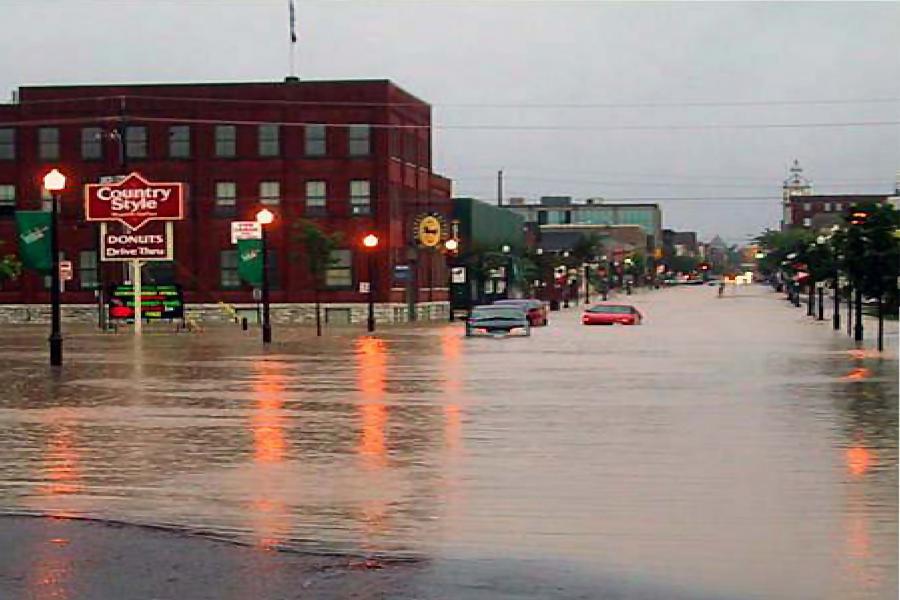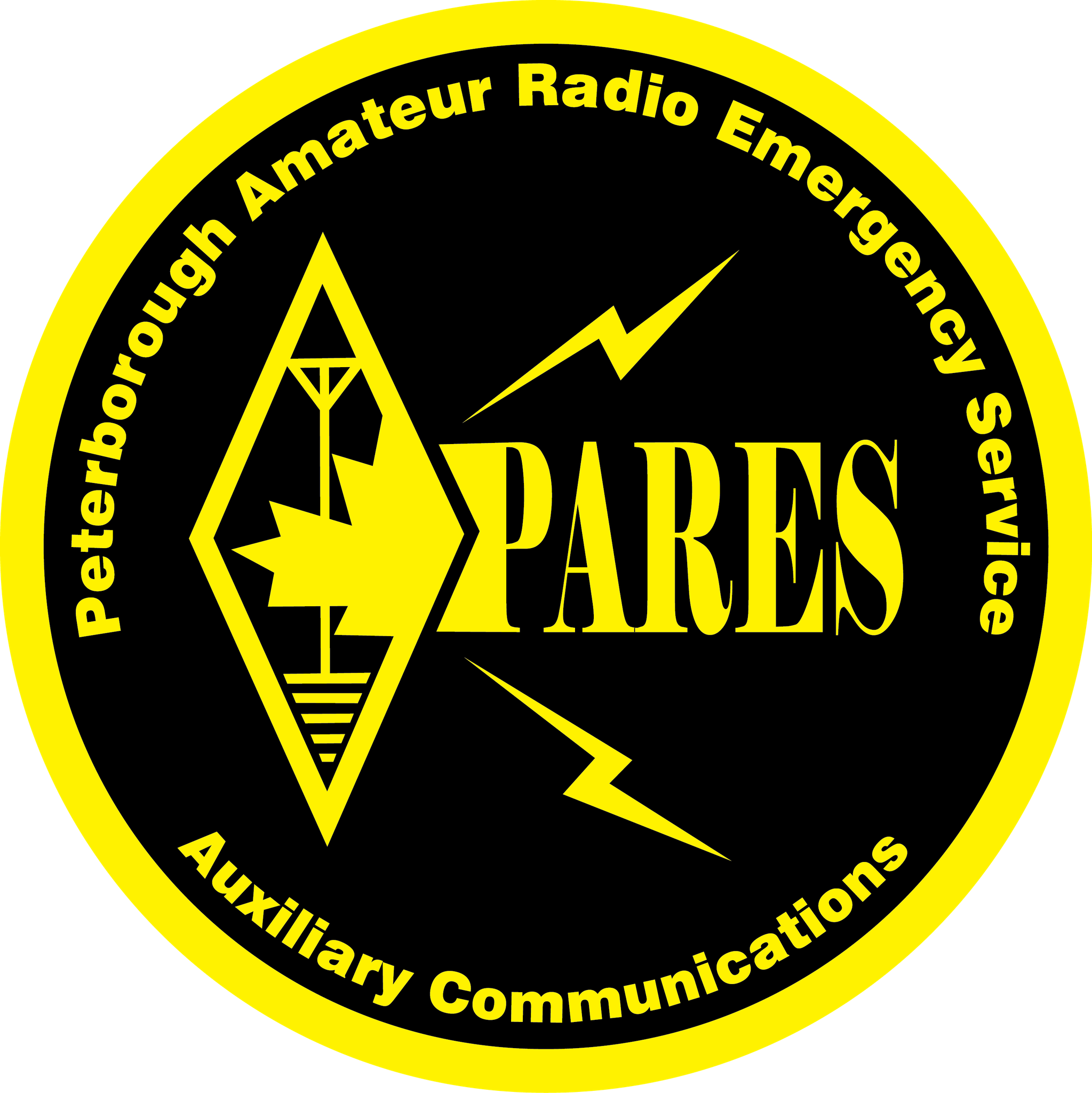What is ARES/ACS
ARES / ACS is a public service organization that delivers communications services during emergencies.
ARES (pronounced AIR-EEZ) /ACS provides qualified communications personnel who establish ad-hoc radio communications links where and when they are needed.
ARES/ACS may be defined as the emergency public service arm of Radio Amateurs of Canada (RAC), Peterborough Amateur Radio Club, and the Amateur Radio Relay League (ARRL) in the United States.
It’s purpose is to advance the public interest and the interests of Amateur Radio by providing a volunteer emergency telecommunications service to federal, provincial, municipal or other local government departments and agencies, designated non-government organizations (NGO) and critical public utilities during an emergency or disaster, including necessary training and incidental activities.
ARES/ACS members conduct training and field exercises in Peterborough County municipalities. We are also Emergency Management Ontario certified.
The Amateur Radio community provides a large pool of experienced telecommunications operators and equipment. In addition, frequency diversity available to ARES/ACS far exceeds anything available on commercial or government radio systems.
The major roles played by ARES/ACS typically include:
- Mitigation of telecommunications failures.
- Supplementary telecommunications support or augmentation.
- Command and control level interoperability (for example, communications from a command post to an Emergency Operations Centre (EOC) and between EOCs).
- Special assignments such as observation and reporting.
ARES/ACS does not typically replace the communications infrastructure used by police or other emergency responders, or the systems in place to support agencies and recovery organizations. Instead, it augments existing communications infrastructure, providing added flexibility and capacity that is often needed during emergencies (for example, between Emergency Operations Centers, community shelters, hospitals, evacuation points and other facilities).
ARES/ACS relies on the services of Amateur Radio operators who volunteer their time, equipment and expertise for the benefit of the community and the public good.
THE VALUE OF AMATEUR COMMUNICATIONS
Technology and the culture of communications are changing faster now than ever before. The “democratization” of advanced communications technologies is transforming the role that Amateur Radio and ARES/ACS has traditionally played in emergency communications.
While advanced communications systems have become ubiquitous in the commercial and public service worlds, their sophistication and reliance on shared commercial networks increases the probability of “system overload” during crises (such as the Dawson College incident), the potential for the loss of a range of services if cell and communication towers fail, or a complete loss of service if communications infrastructure is lost to natural disaster.

In addition, while first responders typically have primary and secondary communication systems, this is not true of many support agencies. The primary roles of those agencies don’t justify the same level of communications capability or even interoperability with the more sophisticated systems used by the public service sector. This means that ARES/ACS is still important in times of disaster, although now in a different way and for different reasons. The value that ARES/ACS offers in today’s context is flexibility, survivability and scalability.
FLEXIBILITY
ARES communications capabilities can be tailored very quickly to meet unusual needs. Amateur Radio is unique in that the radio operators are also skilled in the installation, configuration and even repair of the radio systems that they use, and are able to easily adapt those technologies and systems to meet unforeseen requirements. ARES can create high-capacity ad-hoc networks anywhere that those networks are needed, with very little lead time. Connectivity can be delivered into virtually any location, regardless of coverage by existing repeaters and trunking systems.
SURVIVABILITY
Systems survivability is a real issue in situations where extreme weather affects physical communications infrastructure or where commercial electrical power is interrupted for extended periods.
Some entities have very robust and redundant communications systems, but many systems that are important during an emergency may be affected by power outages or physical damage to antennas and buildings (for example, commercial radio systems, cell sites, wireless data services, and even landline telephone service).
ARES/ACS can serve as a Plan B option when primary communications systems are challenged or disabled. While ARES relies on technologies similar to those used by commercial and government agencies, the diversity of equipment, the training of operators in repair, installation and customization, and the range of frequencies and operating modes available to ARES/ACS guarantees that communications can continue even in worst-case scenarios. Even in the most extreme conditions, it is expected that a significant percentage of ARES/ACS stations would continue to operate in some capacity.
SCALABILITY
Emergency planners balance cost versus benefit, which means that emergency plans provide communications capacity to meet most needs in most situations. Problems occur, however, when emergency demands exceed the planned capacity, or when the emergency itself affects the availability of key communications resources needed to manage that emergency.
Provincial, municipal and other agency communications systems, although robust and well suited to most emergency requirements, are not easily scaled up in times of emergency. Extra transceivers, repeaters, frequencies and personnel familiar with communications procedures may be difficult to obtain in time to be useful.
ARES/ACS is one possible solution in the event that the demand for communications exceeds capacity.
YOUR PARTICIPATION
Should you become an ARES/ACS participant? Becoming an ARES/ACS participant means:
- Being a team player having a genuine desire to assist.
- Reading all the literature about ARES/ACS.
- Attending ARES/ACS meetings.
- Participating in public service events and simulated
exercises. - Checking into nets.
- Getting involved in training others.
- Taking on a specific role.
WHAT ARES/ACS EXPECTS FROM YOU
What is expected from you when you volunteer with ARES/ACS? Answer: Whatever you want to offer. ARES/ACS is a flexible, volunteer-centric organization. It serves as an envelope that the Amateur community can use to deliver emergency communications
services to the community. There is no minimum level of participation. All our documented procedures, protocols and rules are guidelines, intended to facilitate cooperative communications and to communicate best practices. You should not feel pressured to participate to a greater
extent than you are comfortable. Your work with ARES/ACS is not a job, or an obligation. We do ask that you show respect and consideration for other ARES/ACS participants, who are also volunteers. We’re all in this together.
WHAT YOU CAN EXPECT FROM ARES/ACS
ARES/ACS “management”, including your Emergency Coordinator, Assistant Emergency Coordinators, Trainers, and most of the RAC organization, are also volunteers. Their work with ARES/ACS is not a job. They do not get paid, and they donate their time to benefit the community. However, even though ARES/ACS is an all-volunteer organization, there are certain things you can expect from ARES/ACS:
Your privacy will be protected with respect to any information that is not in the public domain and may be sensitive or confidential.
Your time and effort will be respected. ARES/ACS will try not to waste either.
Your effort during exercises and emergencies will be recognized and acknowledged.
ARES/ACS will do its best to protect your safety and security during operations. That being said, the final responsibility is yours and you must be cautious of your safety at all times. Refuse any assignments or duties that you feel may be too hazardous to your safety.
You will have an input into how ARES/ACS is run, and the practices that are used. While ARES/ACS groups try to use best practices garnered from other ARES/ACS groups and Emergency Communication (EmComm) organizations and operations, remember that your ARES/ACS group is your organization and will also reflect your views and preferences.
For additional information on the Amateur Radio Emergency Service, please see Peterborough ARES/ACS website at ptboares.ca, the ARRL website at arrl.org/ares and the Peterborough Amateur Radio Club website ve3pbo.ca
Radio Amateurs of Canada is a national organization representing the interests of Amateur Radio all across Canada. Speaking on behalf of Canadian Radio Amateurs, RAC provides liaison with government agencies and carries the Amateur lAC voice about regulatory and spectrum issues to the discussion table with government and industry leaders, nationally and internationally. With its headquarters in Ottawa, RAC is the Canadian voting member society of the International Amateur Radio Union (IARU). For more information please visit http://rac.ca.


